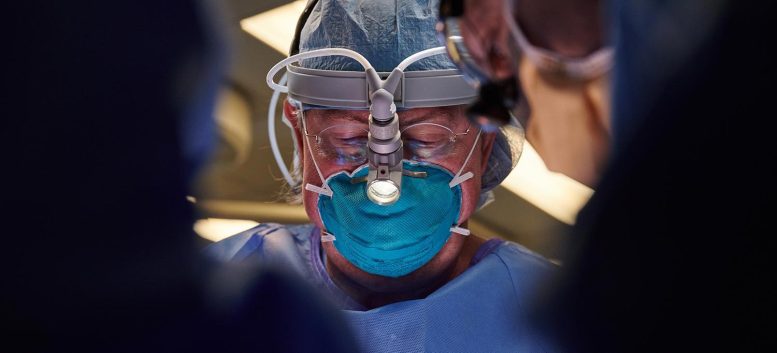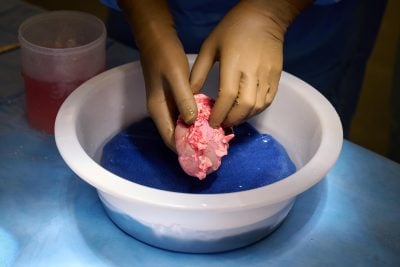
Posted on 12/16/2021 8:30:54 AM PST by Red Badger

During a 54-hour observation period after the transplant, Dr. Montgomery and his team tested the kidney tissue and monitored urine production and creatinine levels. All were found to be normal. Credit: Joe Carrotta / NYU Langone Health
______________________________________________________________________
Less than two months after the first breakthrough surgery, NYU Langone Health has performed its second successful investigational xenotransplantation procedure using a genetically engineered pig kidney. This second surgery is a sign of continued progress toward a potential alternative supply of life-saving organs.
Leading the second surgical procedure was Robert Montgomery, MD, DPhil, the H. Leon Pachter, MD, Professor and chair of the Department of Surgery at NYU Langone and director of the NYU Langone Transplant Institute. He transplanted a pig kidney lacking the alpha-gal gene to a recently deceased donor maintained on a ventilator. LiveOnNY, the nonprofit organization that facilitates organ and tissue donation in the greater New York City area, assisted in identifying a generous whole-body donor to help move this landmark research forward.
“We have been able to replicate the results from the first transformative procedure to demonstrate the continued promise that these genetically engineered organs could be a renewable source of organs to the many people around the world awaiting a life-saving gift,” says Montgomery. “There is much more work to do before we begin living human trials, but our preliminary findings give us hope.”

DURING A 54-HOUR OBSERVATION PERIOD AFTER THE TRANSPLANT, DR. MONTGOMERY AND HIS TEAM TESTED THE KIDNEY TISSUE AND MONITORED URINE PRODUCTION AND CREATININE LEVELS. ALL WERE FOUND TO BE NORMAL. CREDIT: JOE CARROTTA / NYU LANGONE HEALTH Robert Montgomery Xenotransplantation Surgery
The procedure, part of an ongoing study, was performed on Monday, November 22, 2021, at an NYU Langone research laboratory in Manhattan. The kidney was procured from a GalSafeTM pig engineered by Revivicor, Inc., a subsidiary of United Therapeutics Corporation. The gene that encodes the glycan known as alpha-gal—which is responsible for a rapid antibody-mediated rejection of porcine organs by humans—was “knocked out” in the donor pig. The pig’s thymus gland, responsible for “educating” the immune system, was fused with the kidney before transplantation.
The kidney was attached to the blood vessels in the upper leg, outside the abdomen, and covered with a protective shield for observation and kidney tissue sampling over a 54-hour period of study. Urine production and creatinine levels—key indicators of a properly functioning kidney—were normal and equivalent to what is seen in a human kidney transplant. Throughout the procedure and subsequent observation period, there were no signs of rejection.
“We continue to make progress with the single-gene knockout xenotransplantation,” says Montgomery. “With additional study and replication, this could be the path forward to saving many thousands of lives each year.”
There are currently more than 90,000 people in the United States awaiting a life-saving kidney transplant, according to the United Network for Organ Sharing.
GalSafeTM is a trademark of Revivicor, Inc.
My Dad had one implanted back in the ‘70s, and he lived for at least 30 years.
When he DID pass, it was because of other issues.
I just had a thought- those pig valves are living a lot longer in humans than in the original owners.
Animal Rights People, kiss my xxx!
True
Disclaimer: Opinions posted on Free Republic are those of the individual posters and do not necessarily represent the opinion of Free Republic or its management. All materials posted herein are protected by copyright law and the exemption for fair use of copyrighted works.